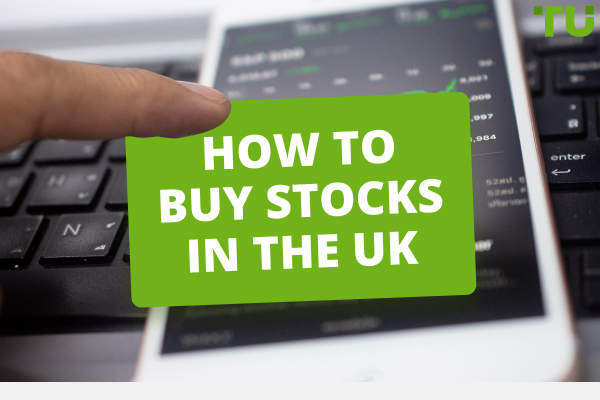Best Forex Brokers That Support Rupee Trading
Given the constrained Forex trading scenario in India, there are a few limited options when it comes to trading the Rupee. These options include Zerodha, Shoonya, and IG Markets. Apart from these limited options, if you're open to exploring other currency pairs that do not involve the India rupee, brokers such as RoboForex, OctaFX, Tickmill, and Exness.
Navigating the world of foreign exchange trading while focusing on the Indian Rupee (INR) requires a deep understanding of both global financial markets and the unique dynamics of the Indian economy. As more individuals seek opportunities to venture into the Forex landscape, finding the right Forex brokers becomes really important. In this article, the experts at TU delve into the realm of Forex trading centered around the Indian Rupee and explore the best Forex brokers that cater to INR trading.
Best Forex brokers with USD/INR support
| Parameter | Zerodha | Shoonya | IG Markets |
|---|---|---|---|
|
Minimum Deposit |
No minimum deposit |
No minimum deposit |
$250 (or equivalent) |
|
Types of Trading Instruments |
Stocks, IPOs, Currency Derivatives, F&O, Commodity Derivatives, Direct Mutual Funds, ETFs |
Stocks, Forex, F&O, ETFs, Bonds, Direct Mutual Funds |
CFDs on Forex, Indices, Shares, Commodities, Cryptocurrencies, Options, Non-CFD Exchange-Traded Securities |
|
Regulation |
Regulated by SEBI, NSE, BSE, MCX |
Not specified |
Apart from these limited options, if you're open to exploring other currency pairs that do not involve the India rupee, the following brokers offer enticing features like low minimum deposits, welcome bonuses, and a broader selection of currency pairs.
Exness
| Parameter | Exness Group |
|---|---|
|
Minimum deposit |
USD 15 - USD 50 |
|
Fees class |
Low |
|
Deposit method |
Bank transfer, Credit card, E-Wallets, Crypto wallets |
|
Withdrawal method |
Same as deposit methods |
|
Withdrawal fee |
No withdrawal fees charged |
|
Time to open account |
Within 1 business day (Complete verification) |
|
Inactivity fees |
Nil |
Exness presents a wide spectrum of trading opportunities, boasting an impressive array of 97 currency pairs and 34 cryptocurrency pairs. This expansive selection encompasses a diverse range of trading choices, from blue-chip equities to commodities and indices.
Traders have the flexibility to engage in markets spanning major, minor, and exotic currency pairs, as well as indices, stocks, energies, cryptocurrencies, and metals. With different account types available, the minimum deposit requirements vary, beginning at $1 for standard accounts and $200 for professional accounts. Floating spreads are a common feature across all account types, while tighter spreads are accessible on Raw Spread and Zero accounts. Leverage availability is contingent on the specific instrument and the regulatory framework governing each trade.
OctaFX
| Parameter | OctaFX |
|---|---|
|
Minimum deposit |
USD 25 |
|
Fees class |
USD 6 trading costs on average |
|
Deposit method |
Visa/Mastercard |
|
Withdrawal method |
Visa, Neteller/Skrill/FasaPay |
|
Withdrawal fee |
No withdrawal fees charged |
|
Time to open account |
Less than a minute |
|
Inactivity fees |
Nil |
OctaFX offers an extensive selection of over 230 tradable instruments, coupled with distinct account types tailored to accommodate various trading preferences and experience levels. Notably, the inclusion of cryptocurrencies allows for both cryptocurrency-based funding and trading, featuring pairs such as Bitcoin, Ethereum, Ripple, and more, with leverage reaching up to 1:25. A diverse range of currency pairs and precious metals, coupled with swift market execution, contributes to enhancing trading efficiency. OctaFX endorses the practice of copy trading across its account types, empowering traders to replicate the strategies of experienced peers. Enriching the trading experience, educational resources, trading signals, charting tools, and webinars are readily accessible to enhance traders' knowledge base.
Tickmill
| Parameter | Tickmill |
|---|---|
|
Minimum deposit |
USD 100 |
|
Fees class |
Low |
|
Deposit method |
Bank transfer, credit/debit cards |
|
Withdrawal method |
Same as deposit methods |
|
Withdrawal fee |
No withdrawal fees charged |
|
Time to open account |
Within 1 business day (Complete verification) |
|
Inactivity fees |
Nil |
Tickmill caters to a broad spectrum of traders through its accessible interface, intuitive trading platforms, and comprehensive educational resources. At the core of its trading offerings lies the MetaTrader 4 platform, supplemented by FIX API access and a Prime brokerage model designed to accommodate advanced trading strategies. The platform's variable spreads start as low as 0.0 pips, predominantly available within the Pro and VIP Account tiers. Notably, commission-free trading is prevalent for CFDs tracking global stock indices, oil futures, and bonds across the account types. Tickmill pledges swift trade execution, averaging within 0.15 seconds, with the added benefit of no requotes even in volatile market conditions. The platform supports a wide range of trading strategies, encompassing arbitrage, scalping, and algorithmic trading.
RoboForex
| Parameter | RoboForex |
|---|---|
|
Minimum deposit |
USD 10 |
|
Fees class |
Low |
|
Deposit method |
VISA/MasterCard |
|
Withdrawal method |
Same as deposit methods |
|
Withdrawal fee |
No withdrawal fees charged |
|
Time to open account |
2 business days (Complete verification) |
|
Inactivity fees |
Nil |
Regulated by the International Financial Services Commission (IFSC), RoboForex extends access to a substantial 12,000 trading instruments spanning eight distinct asset categories. The broker presents a sign-up bonus of $30 to newly registered traders, enabling profit withdrawal.
Trading conditions at RoboForex offer spreads from 0 pips and competitive commissions, primarily within ECN, Prime, and R StocksTrader accounts. Furthermore, RoboForex accommodates real stock investment, offering access to an extensive array of NASDAQ and NYSE-listed stocks. The broker’s R Mobile Trader app empowers mobile trading convenience, permitting essential functions like news monitoring and position management on-the-go.
Rules and Regulation
Licensing in India
Cryptocurrencies are not legal payment methods in India and the country does not regulate cryptocurrency activities. In December 2023, the Financial Intelligence Unit – India issued warnings to Binance, HTX, Kraken, Gate.io, KuCoin, Bitstamp, MEXC Global, Bittrex, and Bitfinex about their illegal activities in the country and, as soon as in January, blocked the websites of large crypto platforms.
Investor protection in India
Crypto traders in India are not protected by law.
Taxation in India
On April 1, 2022, the Finance Bill that includes taxation of digital assets came into effect in India. Any transactions with cryptocurrencies and NFTs are subject to a 30% tax and a 1% Tax Deducted at Source (TDS).
How to trade Forex in India
If you're interested in delving into the world of Forex trading from India, it's essential to grasp the fundamentals and regulations that govern this dynamic market. Let's explore the key elements of trading with the Indian rupee (₹) and how the landscape is shaped by regulatory frameworks and currency pair offerings.
Understanding the Indian Rupee and its role in Forex
At the heart of Forex trading in India lies the Indian rupee, denoted by the ISO 4217 symbol code INR. This currency is subdivided into smaller units known as paisa (p), with 100 paisa making up a single rupee. Remarkably, the Indian rupee ranks 18th among global currencies based on the Bank for International Settlements' 2016 Triennial Central Bank Survey, contributing 1.1 percent to the daily Forex turnover.
Regulatory framework and governing authorities
The foundation for foreign exchange transactions in India is laid out by the Foreign Exchange Management Act (FEMA) of 1999, established and enforced by the Reserve Bank of India (RBI). Tasked with overseeing foreign exchange activities, the RBI plays a pivotal role in maintaining the stability of the Forex market. Meanwhile, the Securities and Exchange Board (SEBI) assumes the role of the primary regulator for both the Indian stock market and the Forex brokers operating within the nation's borders. Under FEMA's umbrella, Forex brokers receive licensing from SEBI.
Scope and limitations of Forex trading
SEBI-regulated Forex brokers, a group encompassing major stock exchanges in India, are exclusively permitted to offer currency pairs pegged to the Indian rupee for USD, EUR, GBP, and JPY. It's important to note that any trading involving currency pairs beyond these four is strictly prohibited unless granted explicit authorization by the Indian government. This stringent measure ensures a controlled and secure environment for Forex trading.
Navigating trading restrictions
Due to an unfortunate rise in fraudulent activities involving Forex brokers, the Indian government has implemented stringent measures to safeguard citizens' financial interests. If you're a resident of India, it's imperative to understand that engaging in Forex trading involving currency pairs not featuring the Indian rupee as the base or counter-currency is legally restricted.
However, there is a workaround for Indian traders keen on exploring Forex markets. You have the option to establish an account with a foreign-based broker, provided you fund your account using electronic wallet services like PayPal or Neteller. This method helps sidestep the restrictions associated with Indian banks, financial institutions, and credit/debit cards issued within the country.
Can I trade Indian Rupee on Forex?
The answer is yes. The Reserve Bank of India has opened the door to Forex trading, but with an essential consideration: all trades must involve the Indian Rupee as the base currency. This unique arrangement enables trading of currency pairs that include the Indian Rupee (INR), alongside major currencies like the US Dollar, Japanese Yen, British Pound, and Euro.
Currency trading within this framework entails the buying or selling of currency pairs, such as USD/INR or EUR/INR. It's important to bear in mind that Forex trading carries substantial risk, demanding a solid grasp of Indian currency market fundamentals before delving into investments.
Notably, trading Forex in India also adheres to other specific regulations. The only lawful approach involves executing trades through SEBI-regulated brokers, staying away from leverage, and focusing on the handful of sanctioned currency pairs.
Pros and cons of trading the Rupee
Engaging in Rupee trading on the Forex market brings forth a set of pros and cons that traders should be mindful of.
👍 Pros
•
Enhanced liquidity for the rupee
Trading the Indian Rupee on the Forex market injects increased liquidity into the financial landscape, opening up more avenues for traders and investors
•
Diversification opportunities
Incorporating the Indian Rupee into your Forex portfolio offers diversification advantages. This adds a currency influenced by unique factors, distinct from major counterparts like the US Dollar or Euro.
•
Profit potential
Just like any other currency, Rupee trading extends opportunities for profit through shrewd speculation on its value shifts. Skilled traders can capitalize on these fluctuations to achieve returns.
•
Currency risk hedging
Businesses navigating global trade can employ Rupee trading as a shield against currency risk. Active management of currency exposure helps safeguard against adverse exchange rate movements.
👎 Cons
•
Regulatory constraints
The Reserve Bank of India enforces regulatory restrictions on currency trading, potentially hampering the flexibility and accessibility of Rupee trading. Such limitations might hamper certain investors from trading in the market.
•
Limited trading volume
Compared to dominant major currencies like the US Dollar or Euro, the Indian Rupee's trading volume remains relatively subdued. This lower volume can lead to wider bid-ask spreads, potentially reduced liquidity, and implications for execution and trading costs.
•
Exchange rate volatility
Economic and geopolitical factors can subject the Indian Rupee to significant volatility, introducing risk and uncertainty for traders and investors.
•
Restricted currency pair availability
While trading the Indian Rupee against major currencies is feasible, the availability of other Rupee-involved pairs might be restricted. This limitation could narrow trading prospects for some traders.
Factors that affect the Indian Rupee
The valuation of the Indian Rupee encounters a combination of influences, encompassing both global and domestic elements. Here, the experts delve into the pivotal factors that exert their sway on the Indian Rupee's value.
Domestic influences:
Inflation dynamics
The strength of a currency often runs inversely to the rate of inflation. Increasing inflation diminishes the Rupee's purchasing power, contributing to its depreciation against currencies like the dollar.
Real interest rates
The real interest rates prevalent in the economy can play a role in shaping the Rupee's value.
Seasonal dollar demand
The periodic surge in demand for dollars by importers and banks on a seasonal basis can also wield an impact on the Rupee's value.
Fundamental aspects
Factors tied to trade and fiscal matters exercise a long-term pull. Countries grappling with persistently elevated trade deficits typically exhibit weaker currencies. India's monthly trade deficit of $12 billion or roughly $150 billion annually, coupled with an import bill of around $420 billion, stands as an exemplar of such influences.
Global dynamics:
Dollar index significance
The dollar index (DXY), measuring the dollar's stability against an array of other currencies, possesses profound implications.
Currency war ripples
Though relatively infrequent, the spectre of currency wars looms as a consideration that can leave an imprint on the Rupee's value.
Global shifts
The Rupee resonates with global convulsions, including pivotal events like potential shifts by the US Federal Reserve, capable of yielding fluctuations in the INR's value.
Local currency transactions
Endeavors promoting the Rupee as an alternative to currencies like the dollar and euro have gathered momentum, bolstered by instances such as New Delhi and Moscow turning to trading in currencies like the Rupee amid geopolitical shifts.
Best time to trade Indian Rupee
When it comes to trading the Indian Rupee on the Forex market, understanding the best timings is crucial, contingent on factors like the currency pair, global occurrences, and trading windows across various financial hubs.
Trading hours in India
INR currency pairs remain tradeable from 9:00 AM to 5:00 PM. However, some cross-currency pairs can be traded until 7:30 PM, providing extended opportunities.
Strategic timing for USD-Related pairs
If you're trading currency pairs closely linked to the US dollar, like EUR/USD, GBP/USD, USD/JPY, the sweet spot for Forex trading in India is typically between 17:30 IST to 20:30 IST.
Global trading session overlaps
Trading experts advocate for conducting trades when multiple global trading sessions converge, resulting in heightened trading activity. These overlapping periods can offer advantageous circumstances for trading endeavors.
What to look for in a Forex broker that supports INR trading?
Choosing the right Forex broker to support INR trading demands careful evaluation of several pivotal factors. Here's a concise overview of what to prioritize, derived from research outcomes:
Regulatory assurance
Opt for a broker under the aegis of a well-regarded regulatory body such as the Securities and Exchange Board of India (SEBI). This offers a sense of security, as regulated brokers adhere to stringent norms and are answerable for their conduct.
Trading platform
Seek a broker furnishing a user-friendly trading platform enriched with advanced charting tools, real-time quotes, and automated trading features. Renowned platforms comprise MetaTrader 4, MetaTrader 5, cTrader, and in-house proprietary solutions.
Transparent fees and commissions
Scrutinize the broker's fee structure encompassing spreads, commissions, and transaction charges. Prioritize a broker extending competitive, transparent pricing to align with your trading strategy.
Diverse currency pairs
Ensure the broker extends an array of currency pairs, encompassing INR pairs. A broader currency selection translates to amplified trading prospects and enhanced flexibility.
Responsive customer support
Opt for a broker providing dependable customer support, including round-the-clock availability, live chat, email, and telephone assistance. Swift and effective customer service is indispensable for seamless trading.
Deposit and withdrawal options
Assess the broker's funding mechanisms, encompassing deposit and withdrawal methods. A broker furnishing secure and expedient funding alternatives streamlines your trading experience.
Track record and reputation
Investigate the broker's reputation by delving into reviews and gauging their historical performance. Prioritize brokers with solid reputations and a demonstrated history of rendering top-tier services to their clientele.
FAQs
Where can Indians trade Forex?
Indians can trade Forex through authorized brokers and platforms that adhere to the regulations set by the Reserve Bank of India (RBI). They can engage in currency trading using specific currency pairs on recognized exchanges such as the National Stock Exchange (NSE) and the Metropolitan Stock Exchange (MSE), through licensed Indian brokers.
Which Forex brokers are legal in India as per RBI?
Forex brokers that are legal in India according to the RBI are those that offer trading in specific currency pairs approved by the regulator. These currency pairs include the INR (EUR/INR, GBP/INR, JPY/INR, and USD/INR) and selected global currency pairs like EUR/USD, GBP/USD, and USD/JPY. These brokers need to be registered with SEBI and adhere to the regulations laid out in the Foreign Exchange Management Act (FEMA). Zerodha is a regulated Forex broker in India.
Is OctaFX approved by SEBI?
OctaFX is not approved by SEBI. Traders should verify the latest information on SEBI-approved brokers before engaging in any trading activities.
Does RBI allow Forex trading?
Yes, the Reserve Bank of India (RBI) permits Forex trading under specific regulations and conditions. Indians can trade in certain currency pairs, including INR-based pairs, and selected global currency pairs like EUR/USD, GBP/USD, and USD/JPY. However, trading must be conducted through authorized channels, and traders should comply with RBI guidelines and adhere to the Foreign Exchange Management Act (FEMA) regulations.
Team that worked on the article
Chinmay Soni is a financial analyst with more than 5 years of experience in working with stocks, Forex, derivatives, and other assets. As a founder of a boutique research firm and an active researcher, he covers various industries and fields, providing insights backed by statistical data. He is also an educator in the field of finance and technology.
As an author for Traders Union, he contributes his deep analytical insights on various topics, taking into account various aspects.
Dr. BJ Johnson is a PhD in English Language and an editor with over 15 years of experience. He earned his degree in English Language in the U.S and the UK. In 2020, Dr. Johnson joined the Traders Union team. Since then, he has created over 100 exclusive articles and edited over 300 articles of other authors.
Mirjan Hipolito is a journalist and news editor at Traders Union. She is an expert crypto writer with five years of experience in the financial markets. Her specialties are daily market news, price predictions, and Initial Coin Offerings (ICO).














